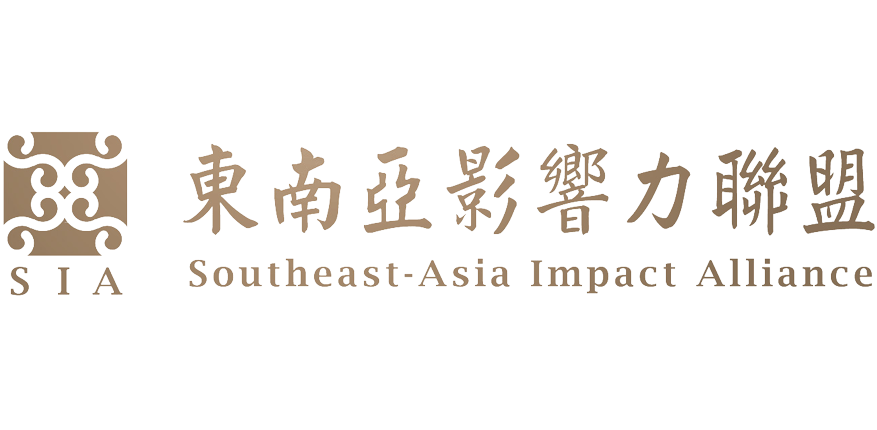| 2025 Energy Summit Successfully Concludes – SIA Advocates Cross-Strait Cooperation for Energy Transition|
(Taipei, March 26, 2025) – The 2025 Energy Summit hosted by the K.T.Li Foundation for Science and Technology Development and co-organized by the Southeast-Asia Impact Alliance, successfully took place on March 25. The forum focused on Taiwan’s critical energy transition challenges and future strategies, bringing together industry and academic leaders to explore ways to achieve sustainable development while ensuring stable power supply.
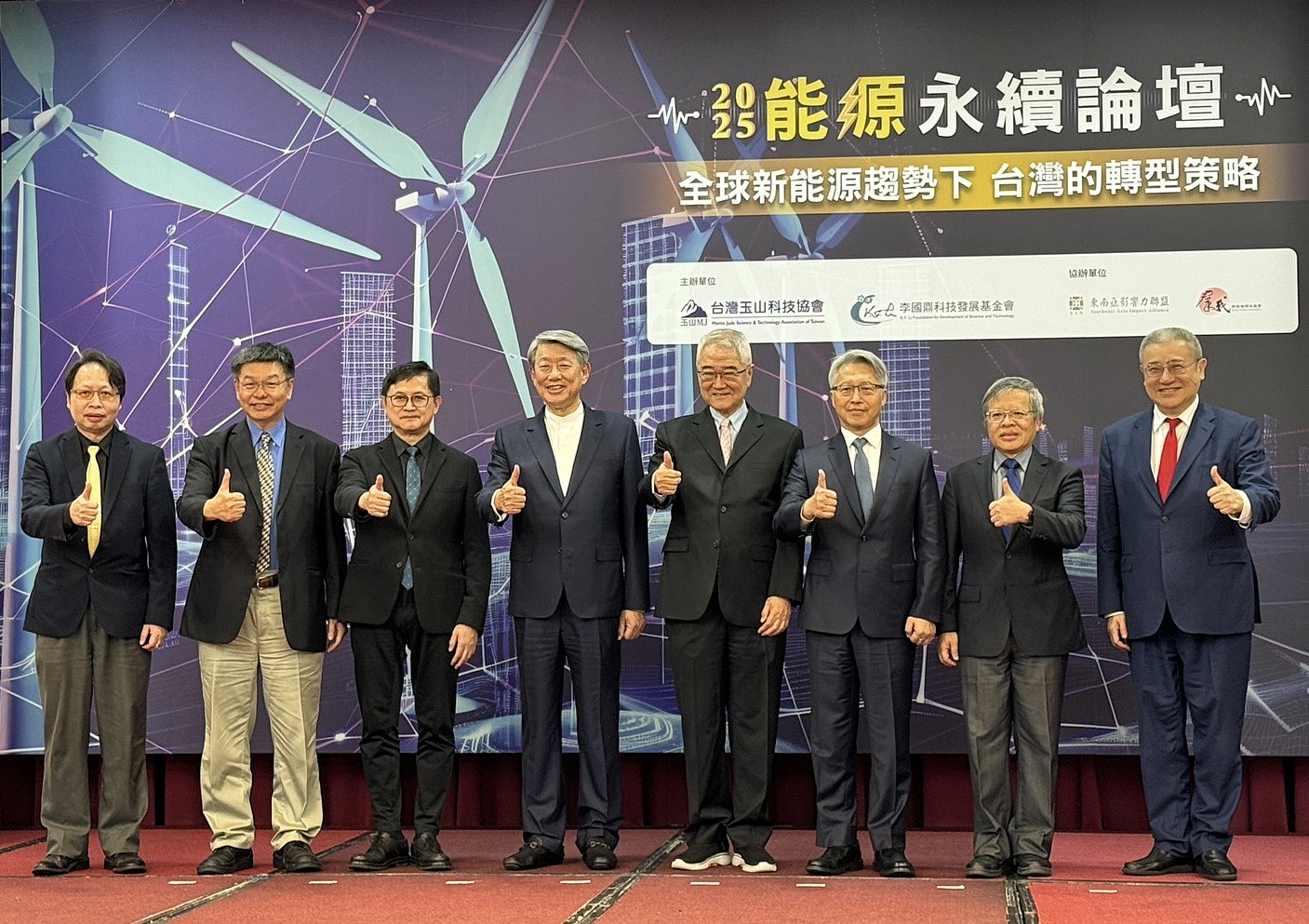 CY Huang: Strengthening Cross-Strait Cooperation, Building a Carbon Neutral Platform
CY Huang: Strengthening Cross-Strait Cooperation, Building a Carbon Neutral Platform
At the forum, Mr. CY Huang, founder of the Southeast-Asia Impact Alliance, emphasized that Taiwan’s current energy structure needs urgent reassessment. In response to increasing power supply challenges, Taiwan should adopt a more open perspective, learn from international experiences, and seek diverse solutions. He pointed out that Mainland China, as a global leader in green energy technology, presents an opportunity for cross-strait cooperation. By leveraging the Fujian Cross-Strait Integrated Development Demonstration Zone, both sides could establish a carbon-neutral industrial platform, deepen energy collaboration, and even explore future power transmission infrastructure to alleviate Taiwan’s electricity shortages.
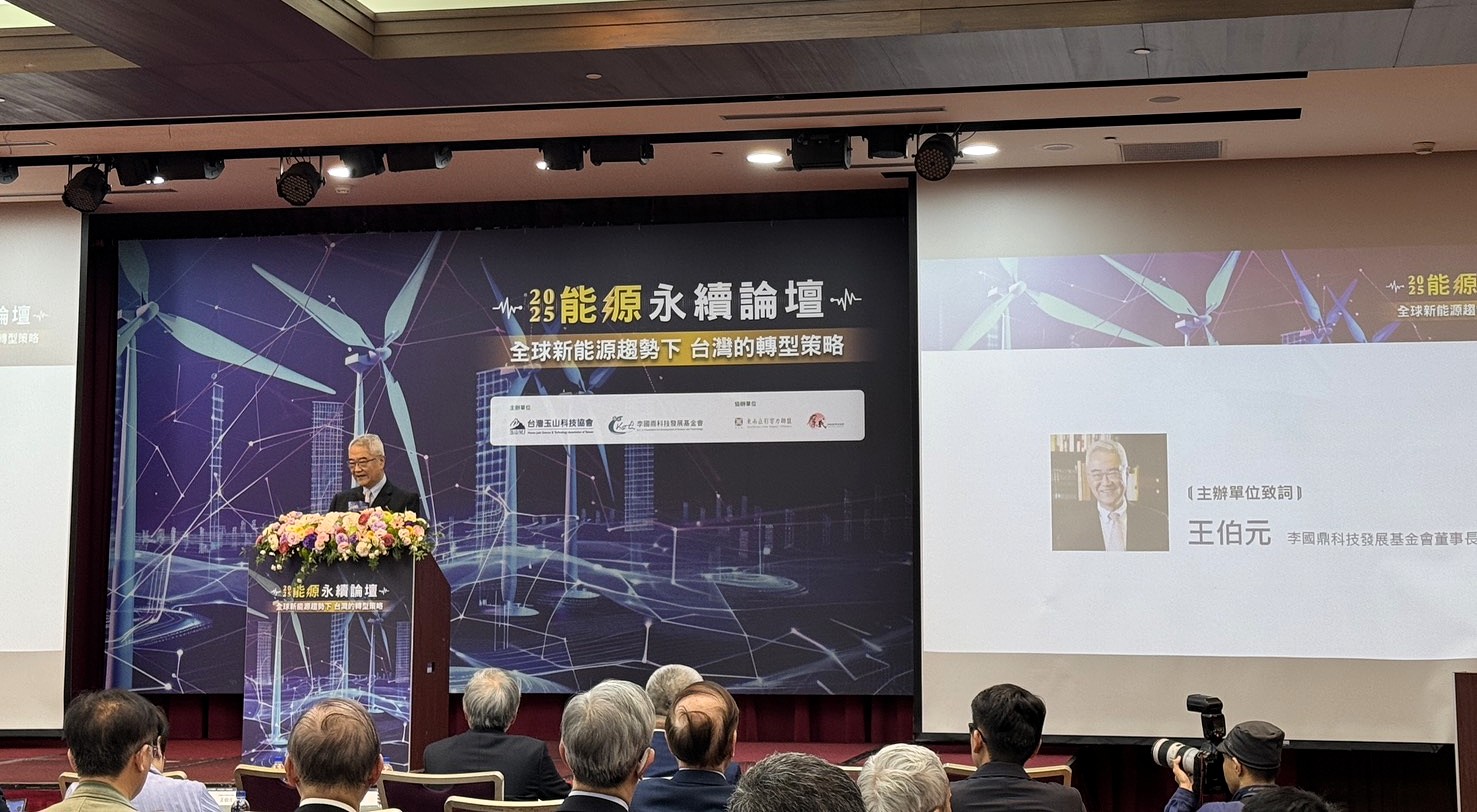
Paul Wang: Reassessing the role of nuclear energy
During the forum, Mr. Paul Wang, Chairman of the K.T.Li Foundation for Science and Technology Development, stated that the era of stigmatizing nuclear energy is over. Advances in nuclear technology have significantly improved safety, and Taiwan should prudently evaluate nuclear power as a stable energy source to ensure a reliable energy supply.
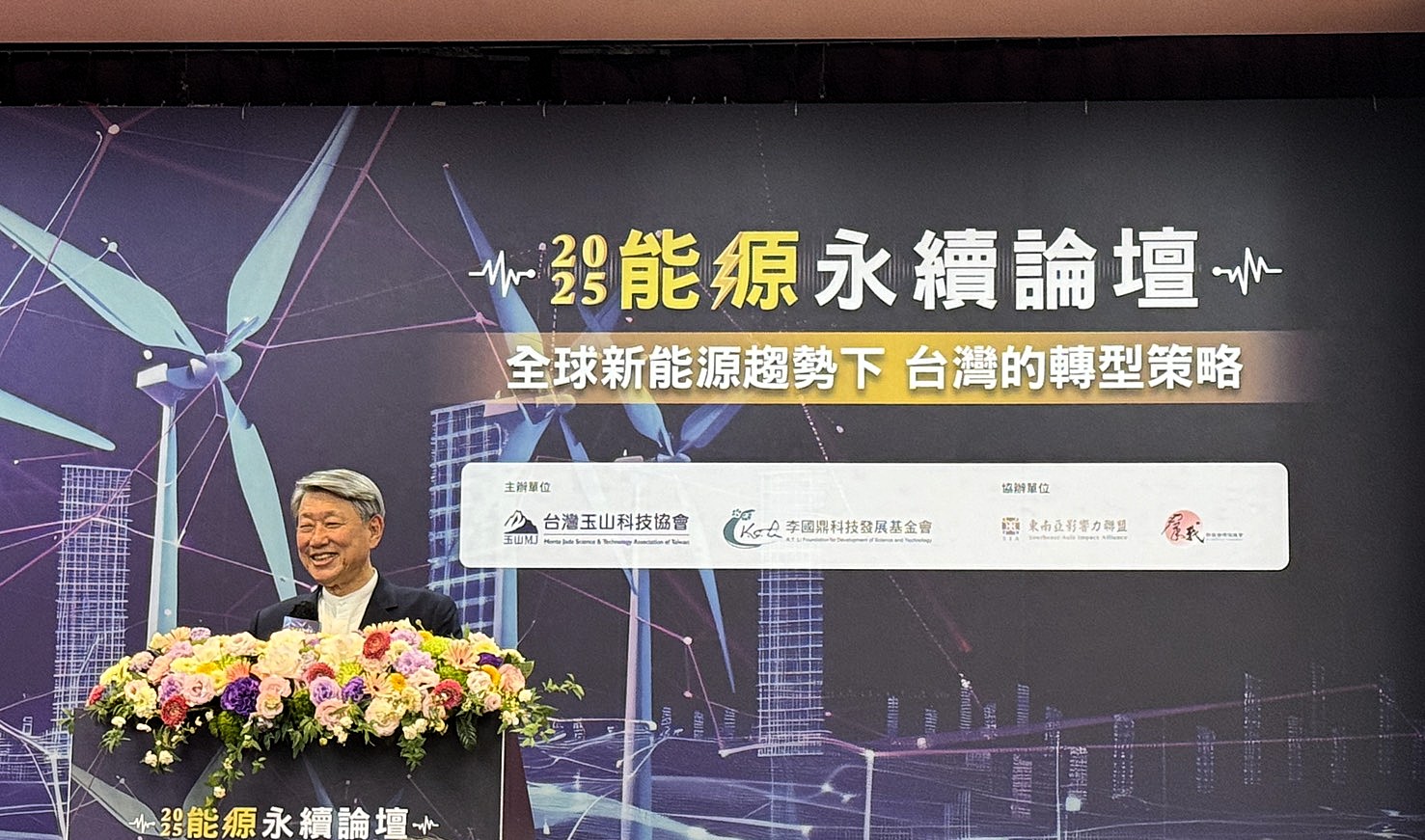
J.W. Kuo: Government pledges to promote renewable energy and strengthen power grid
Meanwhile, Mr. J.W. Kuo , Minister of Economic Affairs, highlighted that energy transition is a global trend and a crucial challenge for Taiwan. Given international political and economic shifts and the rise of emerging technologies, forward-looking energy policies and technological deployment are essential. He stressed that Taiwan prioritizes carbon reduction, aims for net-zero emissions, and promotes diversified green energy and deep energy conservation.
The government will continue developing offshore wind and solar power while actively exploring geothermal, small hydropower, hydrogen, biomass, and ocean energy to enhance energy self-sufficiency. To address renewable energy development challenges, the Ministry of Economic Affairs has strengthened inter-ministerial cooperation, accelerating solutions for land acquisition and investment while providing policy incentives to encourage private sector participation.
The government maintains an open stance on new energy technologies and will introduce appropriate solutions as needed. Additionally, while the minister was preparing to deliver his speech, an anti-nuclear protest by the “Abolish Nuclear Four” association briefly disrupted the event but was quickly controlled.
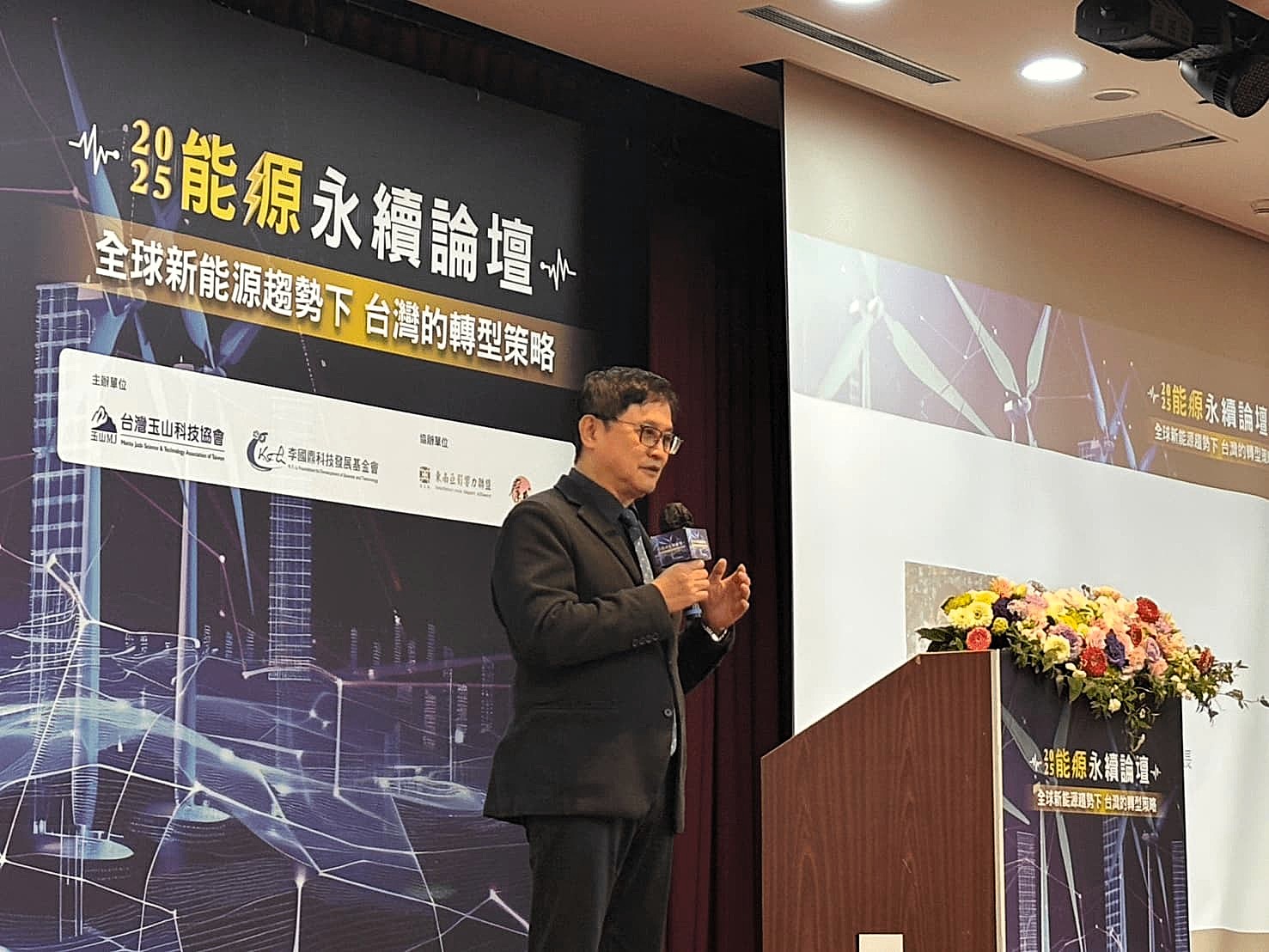
T.H. Tung: Energy – The core factor determining national competitiveness
During the forum, T.H. Tung, Chairman of Pegatron Corporation, emphasized that energy policy decisions impact national security, economic development, and future competitiveness. He called for a rational, science-based approach rather than ideological debates. Tung pointed out that global electricity production is valued at $6 trillion—far exceeding the semiconductor industry—demonstrating the critical role of energy in national development. He asserted that for Taiwan to maintain its global competitive edge, talent, regulatory frameworks, and energy security are indispensable. Tung also referenced the global shift in attitudes toward nuclear energy, citing Japan’s gradual return to nuclear power after the Fukushima disaster and discussions in Europe about extending nuclear plant lifespans as evidence of evolving energy policies.
Discussions on Taiwan Electricity Pricing
Mr. Yumin Peng, Chairman of the Taiwan Technology Management Association, noted that Taiwan possesses the financial and technical capabilities to develop nuclear energy, as well as the expertise to manage nuclear waste. However, long-standing political interference has hindered rational policy discussions. From a long-term perspective, nuclear power will be an unavoidable option for Taiwan.
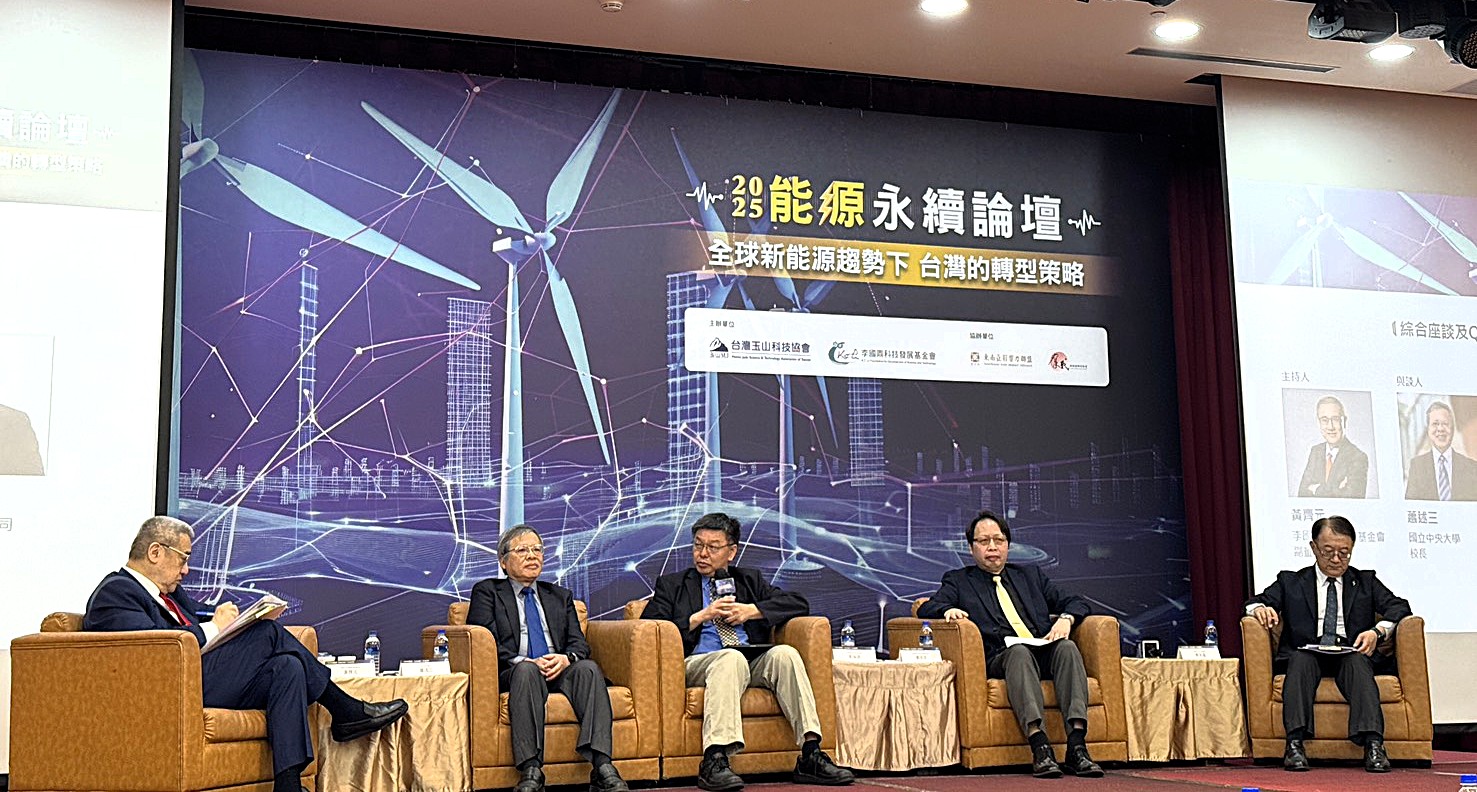
Industry representatives also voiced concerns over Taiwan’s electricity pricing adjustments. With increasing financial pressure on Taiwan Power Company, the Electricity Price Review Committee is set to convene on March 28, and market expectations suggest another electricity rate hike. Residential electricity rates may rise by approximately 10%, while industrial rates could increase by around 5%. Founder CY Huang stressed that a stable and competitive electricity pricing structure is crucial for Taiwan’s industries. He advocated for the adoption of new energy technologies to reduce corporate costs and enhance global competitiveness.
In the AI era, Taiwan’s industrial development requires not only technological innovation but also a strong and stable energy supply. Through the resources and platforms of the Southeast-Asia Impact Alliance, we aim to foster Taiwan’s collaboration with international and Southeast Asian markets in the energy sector to build a greener and more sustainable future.
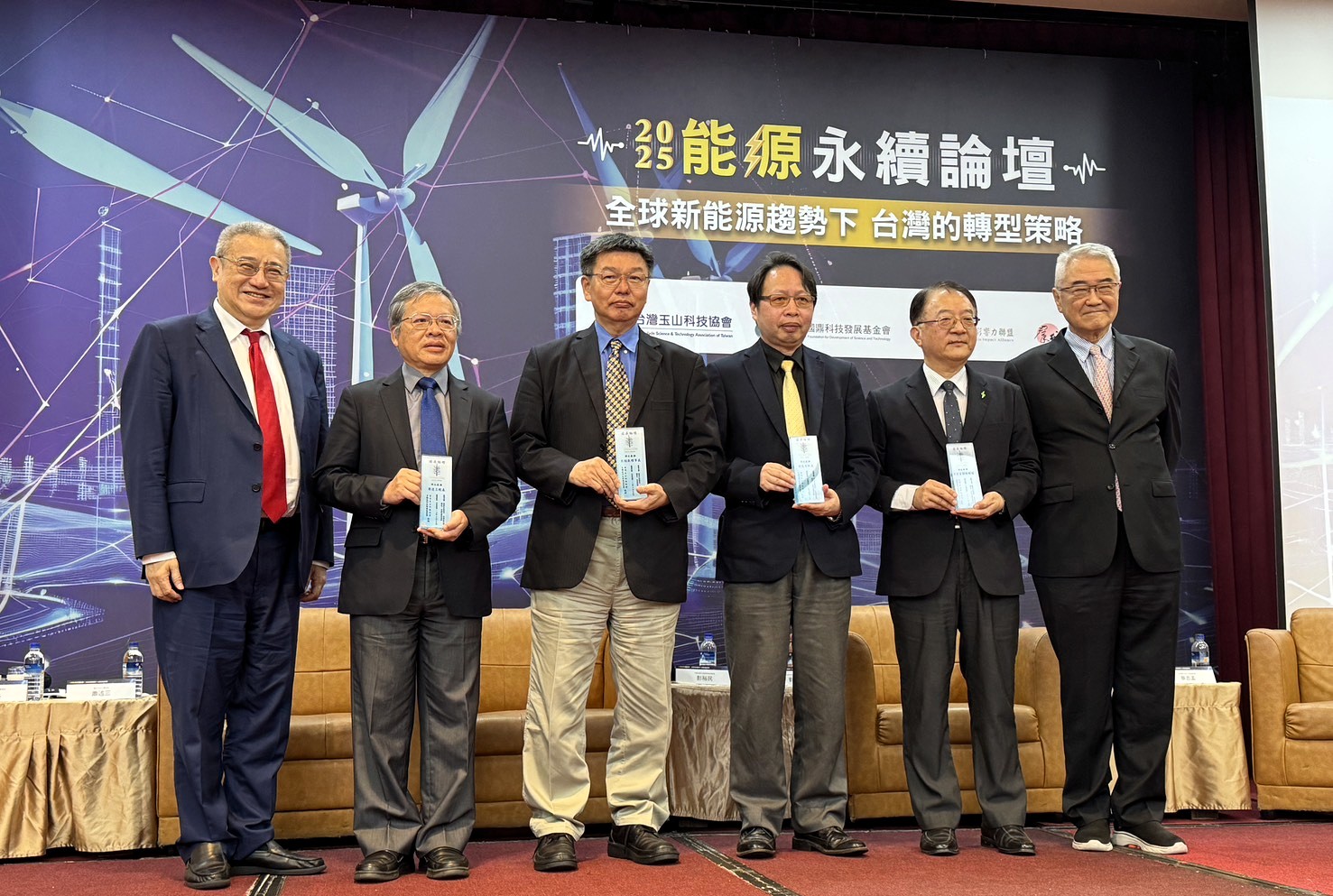
The forum successfully brought together experts from various fields to explore viable solutions for Taiwan’s energy transition. The Southeast Asia Influence Alliance will continue promoting energy cooperation initiatives to advance the regional green energy industry and contribute to sustainable energy development in Asia.
Article you might interest: Vietnam Announces Regulations on Feed-in Tariffs for Renewable Energy
